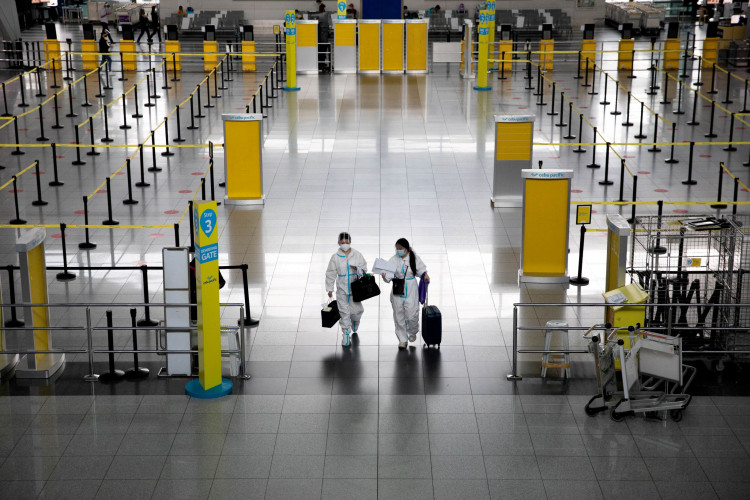An iconic busy bee of fast food in the Philippines has sets its sights on going global to transform its business from a local chain to a major player abroad in online delivery and sales.
Jollibee Foods Corp, whose symbol is the worker bee, anticipates a turnaround this year as the world steadily returns to normalcy following the implementation of COVID-19 vaccines that will pave the way for it to go further abroad, according to CEO Ernesto Tanmantiong after fourth quarter earnings.
"We plan to open 400 plus new stores worldwide most of which will be outside of the Philippines, particularly in North America, Vietnam, and China," he said. Tanmantiong said Jollibee's sales and profit growth will be driven by its international business this year and in the coming years.
An expansion to China would put the company toe-to-toe with Yum! Brands, owners of the KFC franchise in China.
Last year, Jollibee opened a total of 338 new stores, 81 in the Philippines and 257 abroad. This was the first time in the company's history that more new stores were opened abroad than in the Philippines.
The company reported net income of 2 billion Philippine pesos (PHP) ($41.2 million) in the fourth quarter of 2020, a 34.5% decrease from the same period in 2019. For the whole of 2020, Jollibee incurred a net loss of nearly PHP11.5 billion.
Jollibee, like many food franchises around the world, is dealing with a changing market as a result of COVID-19. The Philippines slumped into recession in 2020, and the speed of its projected recovery could be slower than previously believed due to an increase in cases and a delay of the national vaccine campaign.
The country has the second-highest number of infections in Southeast Asia, and mobility restrictions introduced in the last year have hurt businesses, especially restaurants and tourism-related ventures.
Jollibee, famed for dishes like crispy fried chicken and sweet spaghetti, has invested P7 billion on what it called a business transformation, which includes improvements to its delivery and online sales platforms.
Tanmantiong said 8%of new stores in 2021 will be "equally split" among China, North America, and Southeast Asia.






